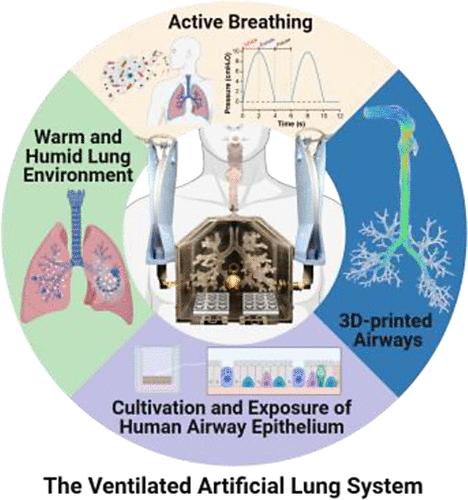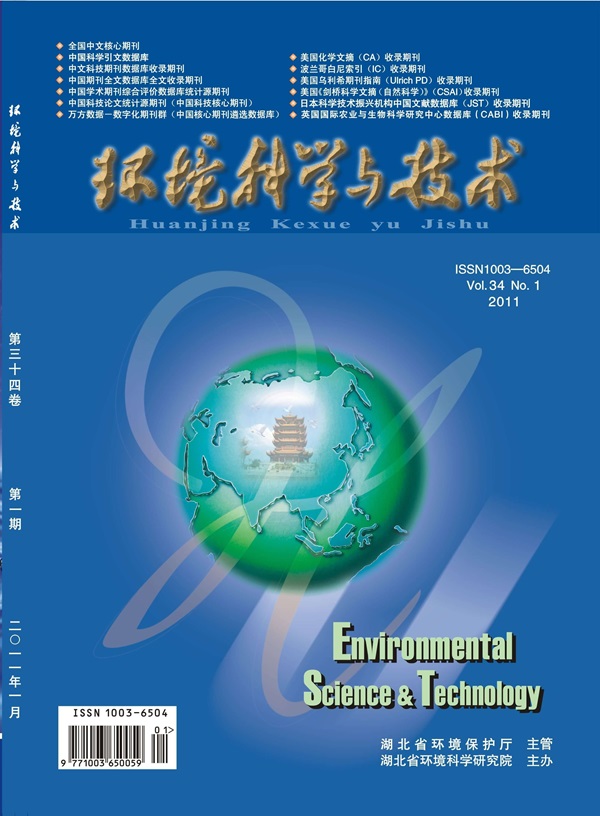A Ventilated Three-Dimensional Artificial Lung System for Human Inhalation Exposure Studies
IF 10.8
1区 环境科学与生态学
Q1 ENGINEERING, ENVIRONMENTAL
引用次数: 0
Abstract
Traditional in vitro and in vivo models for inhalation toxicology studies often fail to replicate the anatomical and physiological conditions of the human lung. This limitation hinders our understanding of intrapulmonary exposures and their related health effects. To address this gap, we developed a ventilated artificial lung system that replicates human inhalation exposures in four key aspects: (1) facilitating continuous breathing with adjustable respiratory parameters; (2) distributing inhaled aerosols through transitional airflow fields in 3D-printed airway structures, which enables size-dependent particle deposition; (3) duplicating the warm and humid lung environment to promote inhaled aerosol dynamics, such as hygroscopic growth; and (4) supporting the cultivation of human airway epithelium for aerosol exposure and toxicological analyses. As a proof-of-concept application, we exposed human bronchial epithelial cells to electronic cigarette aerosols in the system. Our results show that electronic cigarette particles undergo significant hygroscopic growth within the artificial lung, leading to a 19% greater deposition dose compared to data collected at room temperature and relative humidity. Additionally, short-term exposure altered epithelial production of the chemokine Fractalkine in a nicotine-dependent manner, but no acute toxic effects were observed. This artificial lung system provides a more physiologically relevant in vitro model for studying inhalation exposures.

用于人体吸入暴露研究的通风三维人工肺系统
用于吸入毒理学研究的传统体外和体内模型往往无法复制人体肺部的解剖和生理条件。这一局限性阻碍了我们对肺内暴露及其相关健康影响的了解。为了弥补这一缺陷,我们开发了一种通气人工肺系统,该系统在四个关键方面复制了人体吸入暴露:(1)通过可调节的呼吸参数促进连续呼吸;(2)通过三维打印气道结构中的过渡气流场分布吸入的气溶胶,从而实现颗粒大小依赖性沉积;(3)复制温暖潮湿的肺部环境,促进吸入气溶胶的动态变化,如吸湿生长;以及(4)支持培养人体气道上皮细胞,用于气溶胶暴露和毒理学分析。作为概念验证应用,我们在系统中将人类支气管上皮细胞暴露于电子香烟气溶胶。我们的研究结果表明,电子香烟微粒在人工肺内发生了显著的吸湿增长,导致沉积剂量比在室温和相对湿度下收集的数据高出 19%。此外,短期暴露以尼古丁依赖的方式改变了上皮细胞趋化因子 Fractalkine 的产生,但没有观察到急性毒性效应。这种人工肺系统为研究吸入暴露提供了一种更贴近生理的体外模型。
本文章由计算机程序翻译,如有差异,请以英文原文为准。
求助全文
约1分钟内获得全文
求助全文
来源期刊

环境科学与技术
环境科学-工程:环境
CiteScore
17.50
自引率
9.60%
发文量
12359
审稿时长
2.8 months
期刊介绍:
Environmental Science & Technology (ES&T) is a co-sponsored academic and technical magazine by the Hubei Provincial Environmental Protection Bureau and the Hubei Provincial Academy of Environmental Sciences.
Environmental Science & Technology (ES&T) holds the status of Chinese core journals, scientific papers source journals of China, Chinese Science Citation Database source journals, and Chinese Academic Journal Comprehensive Evaluation Database source journals. This publication focuses on the academic field of environmental protection, featuring articles related to environmental protection and technical advancements.
 求助内容:
求助内容: 应助结果提醒方式:
应助结果提醒方式:


